Missing teeth are more than just a cosmetic concern. They can be a source of frustration and insecurity, impacting your ability to eat comfortably, speak clearly, and even affecting your social interactions. Understanding why teeth go missing, the consequences they bring, and the available solutions empowers you to take control of your oral health and restore your smile.
A Multifaceted Problem: What are the Reasons for Missing Teeth?
Teeth can disappear for various reasons, some preventable and others unforeseen. Here’s a closer look at some common culprits:
Tooth Decay
When cavities are left untreated, they can progress into serious infections, ultimately leading to tooth loss. Regular dental checkups and proper oral hygiene practices are crucial to prevent cavities and their potential consequences.
Gum Disease
This chronic inflammatory condition attacks the tissues supporting your teeth (gums and bone). If left untreated, gum disease can weaken these structures, causing teeth to loosen and eventually fall out. Maintaining good oral hygiene and attending regular dental cleanings are essential for preventing gum disease.
Injury
Accidents, falls, or sports injuries can damage or knock out teeth. While some injuries may be unavoidable, wearing protective gear during sports activities can help minimize the risk.
Other Factors
Genetics, certain medical conditions, and medications may also play a role in tooth loss. Consulting with your dentist can help determine if any underlying conditions require additional medical attention.
The Ripple Effect: Consequences of Missing Teeth
The consequences of missing teeth can vary depending on the number and location of the missing teeth. However, some common challenges include:
- Chewing Difficulties: Missing teeth, particularly molars essential for grinding food, can make chewing challenging. This can lead to a preference for softer foods, potentially impacting your dietary intake and overall nutrition.
- Speech Impediments: The position and function of teeth play a role in speech production. Missing teeth can alter the way your tongue interacts with your remaining teeth, affecting your ability to pronounce certain sounds clearly.
- Reduced Confidence: Missing teeth can impact your smile’s aesthetics, leading to self-consciousness and a reluctance to smile openly. This can hinder social interactions and affect your overall well-being.
- Facial Collapse: Over time, missing teeth can cause a change in the structure of your face. The jawbone relies on stimulation from the roots of teeth to maintain its density. When teeth are missing, the bone can begin to deteriorate, leading to a sunken appearance in the face.
- Shifting Teeth: The remaining teeth may shift to fill the gaps left by missing teeth. This can lead to misalignment, crowding, and difficulty cleaning your teeth properly, potentially increasing the risk of further dental problems.
What are the Options for Missing Teeth?
Fortunately, advancements in dental technology offer various solutions for missing teeth. Here’s a breakdown of some common options:
Dental Implants: These are small, biocompatible titanium posts surgically placed in the jawbone to act as artificial tooth roots. Implants offer the most natural-looking and functionally stable solution for replacing missing teeth. Crowns or bridges are then attached to the implants, restoring both aesthetics and chewing function.
Benefits: Implants are highly durable and can last a lifetime with proper care. They provide excellent stability and prevent bone loss in the jaw. Implants also offer the closest feel and function to natural teeth, allowing you to eat and speak with confidence.
Considerations: Dental implants require a surgical procedure and are typically the most expensive option for replacing missing teeth. Healing time after implant placement can vary from a few months to a year.
Dental Bridges: Bridges are fixed dental restorations that bridge the gap between missing teeth. They consist of artificial teeth anchored to crowns placed on healthy teeth on either side of the gap.
Benefits: Bridges are a less expensive option compared to implants and offer a good aesthetic solution. They are a viable option for replacing multiple missing teeth located next to each other.
Considerations: Bridges require the preparation of healthy teeth to support the crowns, potentially removing some healthy tooth structure. Bridges may not be suitable for all cases, particularly if there are not enough healthy teeth on either side of the gap to support the bridge.
Dentures: Dentures are removable complete or partial prosthetic replacements for missing teeth. Full dentures replace all teeth in an arch, while partial dentures replace a few missing teeth.
Benefits: Dentures are a more affordable option compared to implants or bridges. They can be a good temporary solution for people with multiple missing teeth or complete tooth loss.
Considerations: Dentures can slip or become loose, potentially affecting chewing and speech. They may require adjustments over time and may not be as comfortable or aesthetically pleasing as implants or bridges.
Taking the First Step Towards a Complete Smile
If you have missing teeth and are concerned about the impact on your oral health, self-confidence, or overall well-being, booking a consultation with a dentist is the best first step. A qualified dentist can assess your situation, evaluate the number and location of missing teeth, and discuss the various treatment options available. They can also address any underlying dental issues contributing to tooth loss and recommend preventative measures to maintain your oral health in the future.
Here are some important considerations when choosing a treatment plan:
- Severity of Tooth Loss: The number and location of missing teeth will influence the most suitable option. For a single missing tooth, implants might be ideal, while bridges or dentures could be appropriate for multiple missing teeth.
- Overall Oral Health: Existing dental problems like gum disease or decay might need to be addressed before implementing a permanent solution for missing teeth.
- Budget and Finance: The cost of treatment varies depending on the chosen method and the complexity of the case. You may benefit from finance options, depending on Dental Practice.
- Desired Outcome: Consider the importance of aesthetics, functionality, and long-term durability when making your decision. Discuss your expectations and concerns with your dentist to ensure the chosen treatment aligns with your goals.



